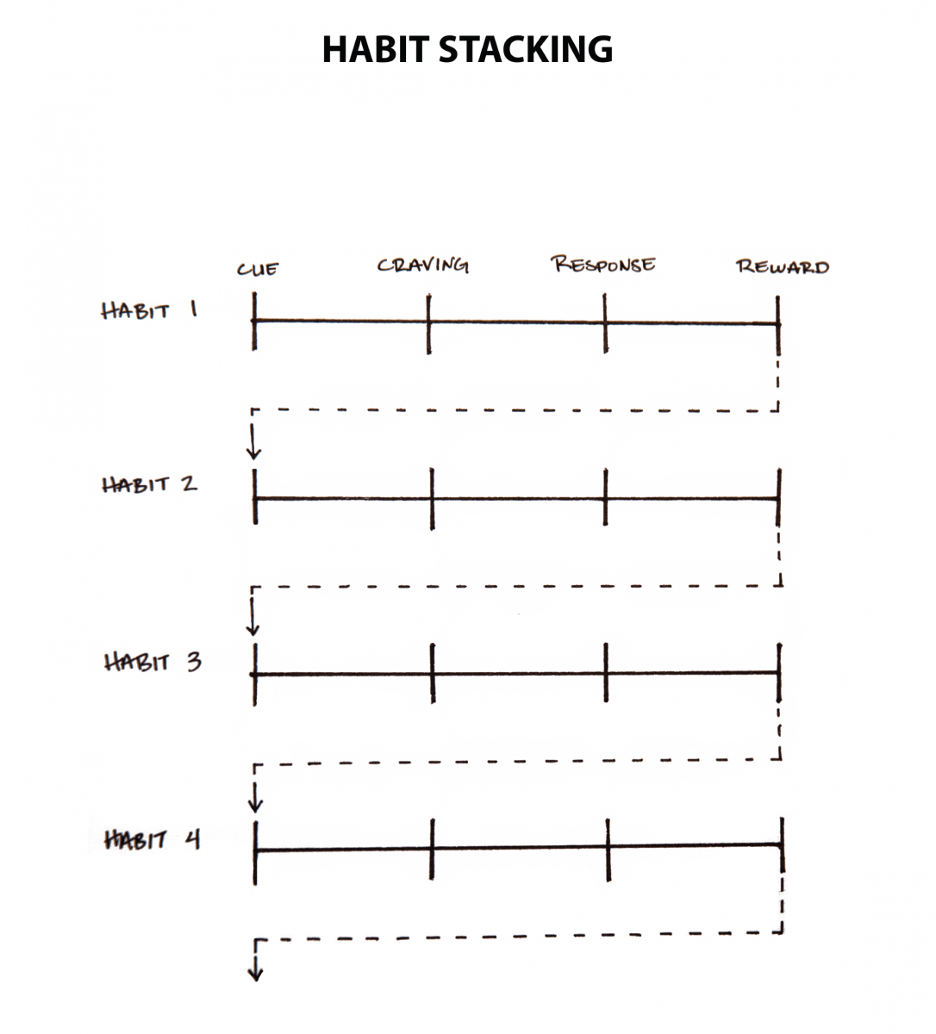
The Significance Of Habits
Habits. They are everywhere. They are consciously and unconsciously done throughout the day. For example, how we eat a meal. We all have ways in which we prepare our food, use a paper towel or napkin. Does it lay flat, or do we crumble it? Do we separate our food or mix it together? How we hold a fork and how we cut with a knife. We all have specific ways on which we do things. And if you are shaking your head saying, “no that’s not me”, I want to ask you the next time you sit down to really take a look of how you “eat”.
The point here is to illustrate the significant amount of variance between each of our eating habits. Furthermore, there is a variety on what habits we choose to utilize. Whether we consciously or unconsciously choose which habits to use these habits run our lives.
Synaptic pruning occurs with every habit you build. Your brain builds a strong network of neurons to support your current behaviors. The more you do something, the stronger and more efficient the connection becomes. Think back to that eating habit. The more you separate your food, the more you will need that each time you eat a meal.
The eating habit may just be one habit, but you probably have other very strong habits and connections that you take for granted each day. For example, your brain is probably very efficient at remembering to take a shower each morning or to brew your morning cup of coffee or to open the blinds when the sun rises … or thousands of other daily habits. You can take advantage of these strong connections to build new habits.
When it comes to building new habits, you can use the connectedness of behavior to your advantage. One of the best ways to build a new habit is to identify a current habit you already do each day and then stack your new behavior on top. This is called habit stacking.
Let’s play around with an example. Perhaps you’ve been telling your coach or yourself that you want to change your diet, add some extra meditation in, or add extra mobility into your daily lifestyle. You say to your coach or yourself “I don’t know where to start, or how to do keep myself accountable”. Let’s break it down with a simple formula:
After/Before [CURRENT HABIT], I will [NEW HABIT].
For example:
After I pour my cup of coffee each morning, I will meditate for one minute.
After I take off my work shoes, I will immediately change into my workout clothes.
After I change into my workout clothes, I will dedicate 5 minutes to shoulder mobility.
After I put on my workout shoes, I will text my coach which workout I am doing.
After I complete my workout, I will prepare a well-balanced meal.
After I get into bed at night, I will give my partner a kiss.
Again, the reason habit stacking works so well is that your current habits are already built into your brain. You have patterns and behaviors that have been strengthened over years. By linking your new habits to a cycle that is already built into your brain, you make it more likely that you'll stick to the new behavior.
Once you have mastered this basic structure, you can begin to create larger stacks by chaining small habits together. This allows you to take advantage of the natural momentum that comes from one behavior leading into the next. Take a look at the picture below.

Overall, habit stacking allows you to create a set of simple rules that guide your future behavior. It’s like you always have a game plan for which action should come next. Once you get comfortable with this approach, you can develop general habit stacks to guide you whenever the situation is appropriate.
One question we ask ourselves is “ Does it really take 21 days to build a habit”? Wow, that seems like a long time which is why most of us don’t ever start. Well, some habits take more time and some take less time. And habits with greater complexity require more time to refine, or a heavier emotional weight, meaning that the more something matters to you, the faster you will make it part of your life.
Here is the truth. If you keep failing at making life changes that you know will be good for you, how much do you care about improving your life? Honestly, this may be harsh for some to hear, but isn’t it the truth? Do you really care? Or are you just saying the right things out loud for your coach or you to hear it. Ask yourself “Am I ready to make a change? Will I commit to improving my daily habits?”
What habits do you wish you had in your life? Are you willing to make the changes necessary?
I encourage everyone to give habit stacking a try.